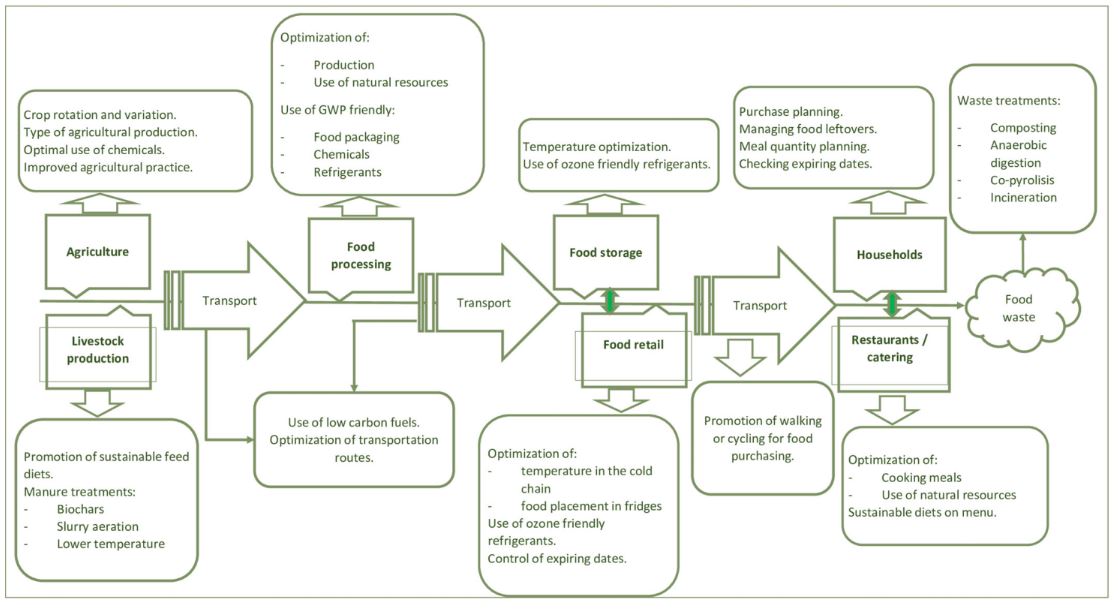September 10, 2022 | Science of The Total Environment | Source |
Introduction: A global research consortium from UK, Portugal, Sri Lanka, South Africa, Nigeria, Japan, Uruguary, Serbia explores how food production and climate change are intricately linked throughout the entire food supply chain.
Key findings: The global research consortium points out how activities along food supply chain like agriculture, livestock farming, food processing, transportation, and waste disposal contribute to greenhouse gas emissions and environmental impact. Climate change, in turn, disrupts these processes through factors like extreme weather and economic shifts, affecting global food security, especially in vulnerable regions like Africa and South Asia. The study identifies key Sustainable Development Goals (SDGs) that are impacted, including poverty alleviation, zero hunger, clean water, climate action, and biodiversity conservation. It calls for integrated strategies across the food supply chain to mitigate these impacts, emphasizing the need for sustainable practices, technological advancements, and shifts towards more resilient food systems to ensure future food security and environmental sustainability.
Figure | Main mitigation strategies in combating climate change throughout the food supply chain continuum.





